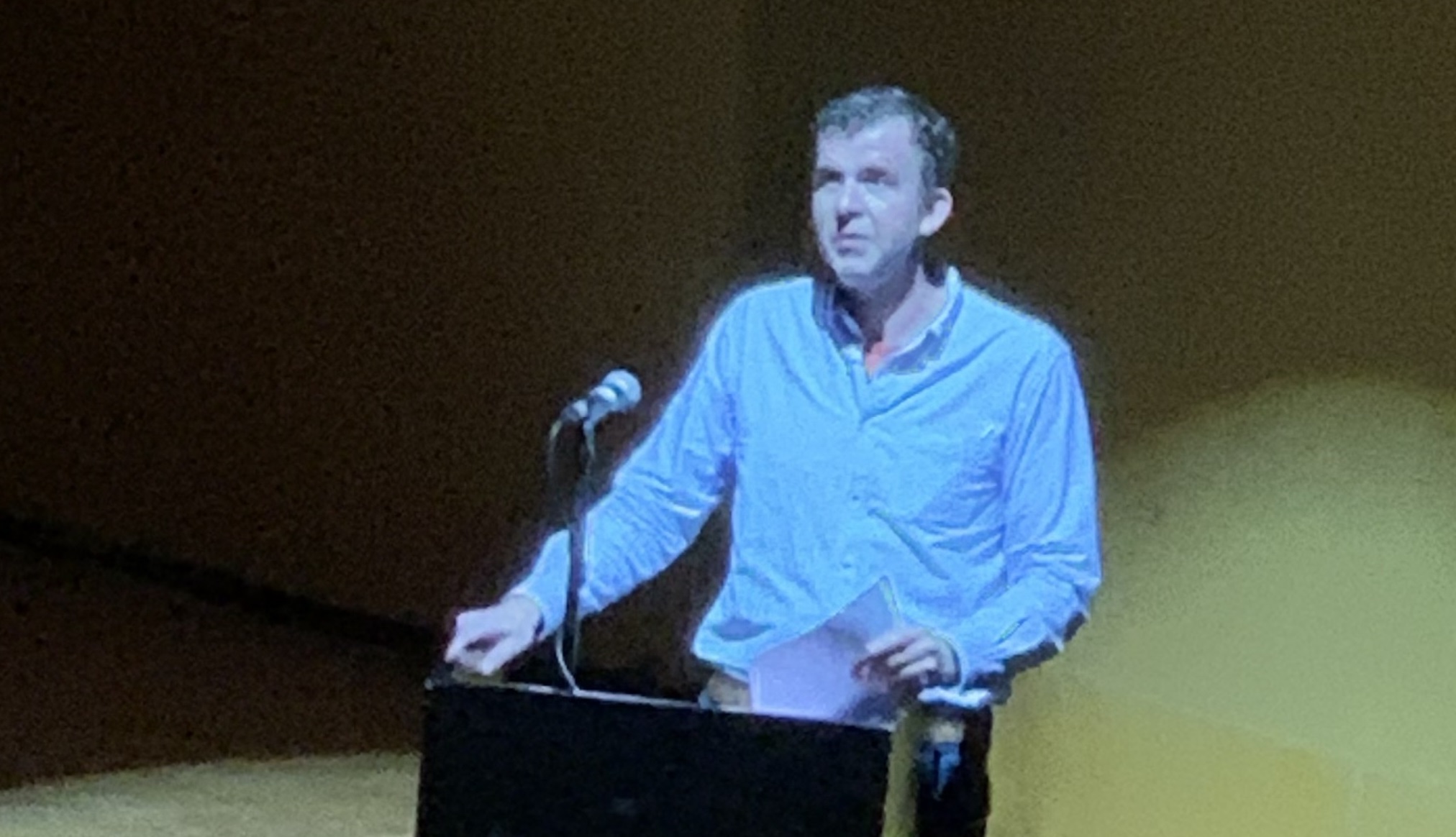The 48th International Viola Congress takes place in Salaya, Thailand from June 6th – 10th, 2023. Daily blog reports are delivered to you by Karin Dolman [kd] and Kristofer Skaug [ks].
Day 1: Tuesday, June 6th, 2023
<next day>
[ks] It’s time for another International Viola Congress (IVC), but the setting for this year’s edition is certainly unlike those of past congresses: for the first time ever, an IVC is hosted in Asia, and not even in a string instruments “powerhouse” nation such as South Korea, Japan or China, but Thailand! In the Bangkok suburb of Salaya, the Mahidol University School of Music is kindly opening its doors this week to violists from all over the world, under the banner “Music without Borders”. Your intrepid DVS bloggers are of course on the scene to bring you the hottest Viola news in near real time.
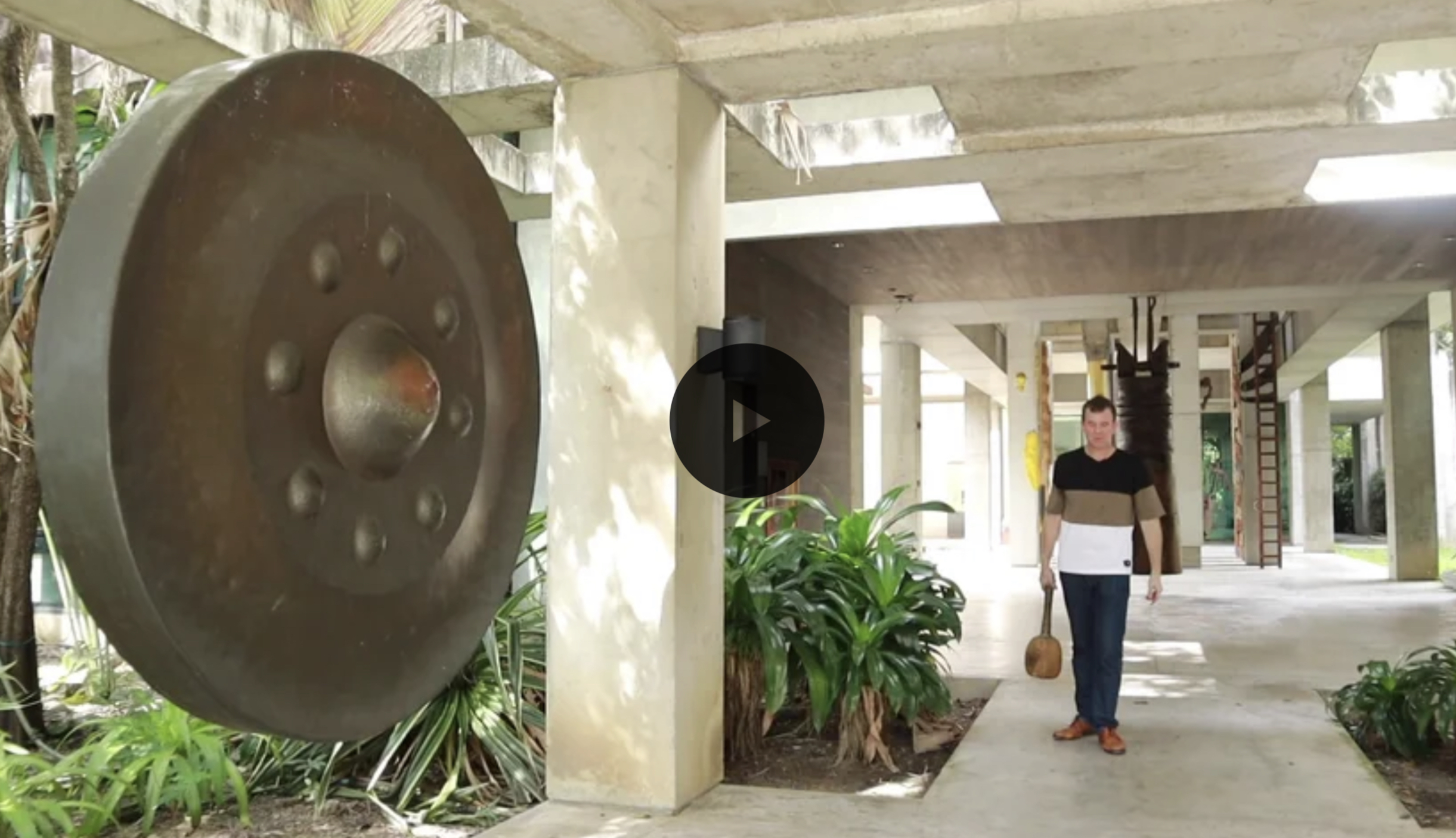 Just getting to Salaya wasn’t exactly easy, 11 hours of back-wrenching, restless-leg-bruising 2nd-class KLM seats followed by a 1-hour sweaty and jet-lagged taxi ride with an unusually talkative yet totally incomprehensible driver, in spite of having invested in the best cab-calling and Thai translation support that apps can buy. Thai streets are definitely not built for pedestrians, and they’re also evidently confusing for taxi drivers with a modern GPS system, so it’s unclear what exactly these roads are optimised for.
Just getting to Salaya wasn’t exactly easy, 11 hours of back-wrenching, restless-leg-bruising 2nd-class KLM seats followed by a 1-hour sweaty and jet-lagged taxi ride with an unusually talkative yet totally incomprehensible driver, in spite of having invested in the best cab-calling and Thai translation support that apps can buy. Thai streets are definitely not built for pedestrians, and they’re also evidently confusing for taxi drivers with a modern GPS system, so it’s unclear what exactly these roads are optimised for.
In the end, we gambled on casting aside our confused driver and our equally clearly heat-struck “smart” phones to navigate the last 200 meters by a combination of old-fashioned compass, astronomical knowledge, sensory inputs and a totally misplaced overconfidence in intuition. The result was an agitated 15-minute zigzag trek through a dreamy landscape of tropical forest, ponds, idyllic but dead-ending labyrinthic boardwalks, weird statues, intimidatingly big monitor lizards lurking in the shrubs, exotic bird chirps and remote elephant wails (or wait, were those trombones from the School of Music?). In short, it’s a campus like none you’ve ever seen!
 But in the end we did stumble out of the jungle and onto the Congress venue, and I was positively surprised at the number of familiar faces. Honestly I had not expected so many Viola friends to make this long journey, but clearly violists can be quite adventurous! In fact, as many as 8 members of the DVS have invested their personal savings to form a solid Dutch delegation here at the Congress.
But in the end we did stumble out of the jungle and onto the Congress venue, and I was positively surprised at the number of familiar faces. Honestly I had not expected so many Viola friends to make this long journey, but clearly violists can be quite adventurous! In fact, as many as 8 members of the DVS have invested their personal savings to form a solid Dutch delegation here at the Congress.
In the relentless tropical heat of this place – meteorologically known as the world’s hottest urban region (on average) – we were welcomed by host Danny Keasler and his team with ice cold tropical juices and gratifyingly fresh indoor climates. The Main Auditorium of the College of Music (MACM for short) furthermore offers a no-nonsense interior design, great acoustics and comfortable seats well fit for a full week’s worth of Congress presentations. Many a Dutch conservatory would be overjoyed with such a hall!
[kd] Ettore Causa is one of the IVC2023 Featured Artists. During the wonderful opening concert, he first played four Brahms songs transcribed for viola and piano, which fit the viola very well. I would like to look into the score. Such songs tend to let the piano play more along with the main voice, but here we heard a really beautiful interplay.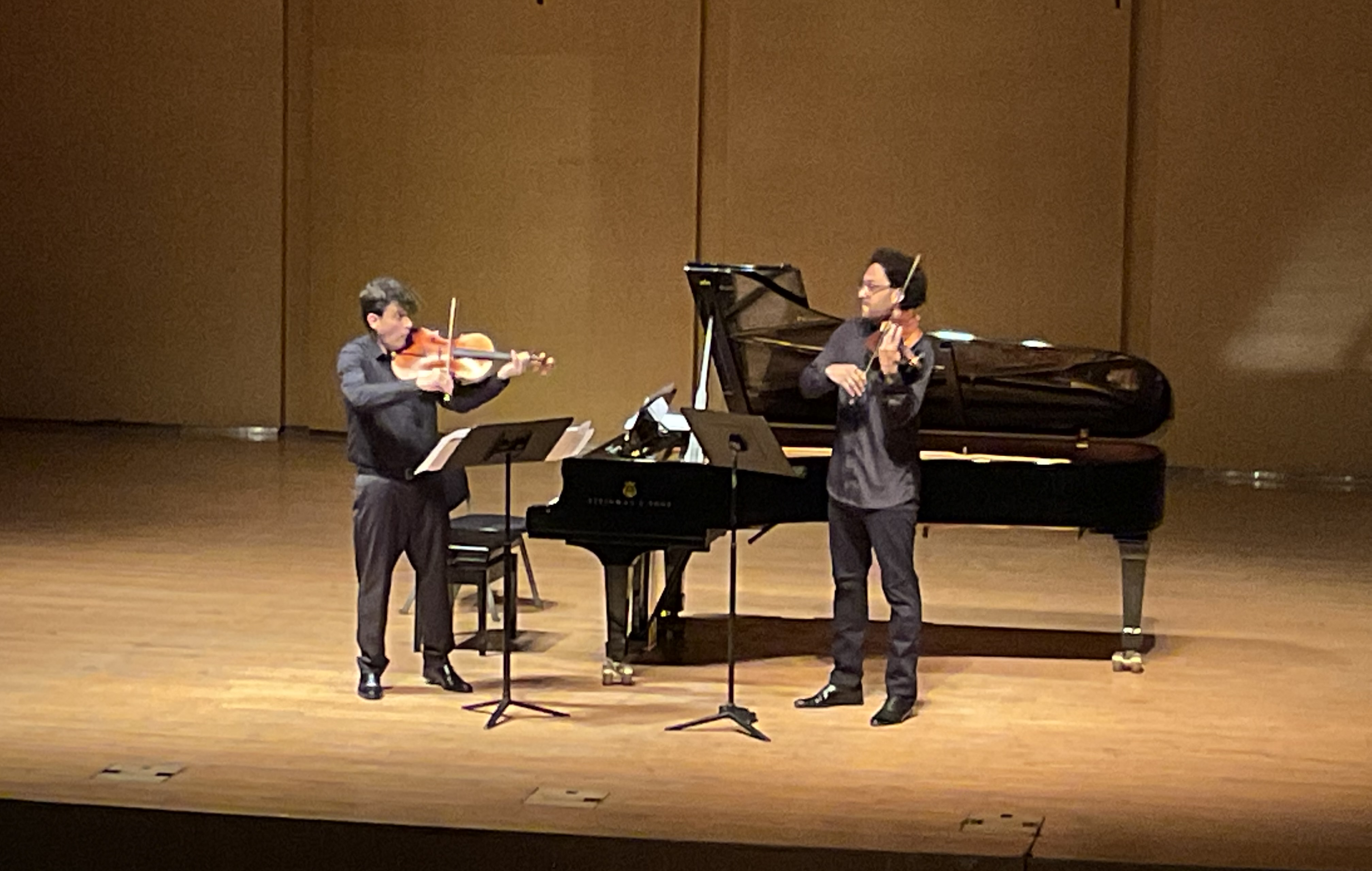 In the next piece, Causa was joined by the Canadian Juan-Miguel Hernandez. It is the duet Moonlight Journey written by Paul Coletti, a viola player who loves to compose in a very romantic style. Also really jazzy! The two men on stage are communicating through their beautiful playing. So remember the name Paul Coletti. It is challenging and so much fun to play his music (Hernandez is by the way one of his former students).
In the next piece, Causa was joined by the Canadian Juan-Miguel Hernandez. It is the duet Moonlight Journey written by Paul Coletti, a viola player who loves to compose in a very romantic style. Also really jazzy! The two men on stage are communicating through their beautiful playing. So remember the name Paul Coletti. It is challenging and so much fun to play his music (Hernandez is by the way one of his former students).
In another arrangement created by Causa, the Melancholie by Cesar Franck fits the viola like a tailor-made suit. Originally for violin and piano, this piece is written at the height of the composer’s creative powers, at about the same time as his famous violin sonata,.
The last piece of the opening concert is the Chopin cello sonata, again transcribed by Causa. Beautifully played! It is a piece to drift off to peace of mind.
[ks] The 1st edition of the IVS-sponsored Choochart Pitaksakorn International Viola Competition took place this afternoon, open for students of age 12-28 years. This wide field made the jury’s task a bit tricky, given that pre-college contestants from Thailand simply cannot be fairly compared to elite music programme students from e.g. South Korea. In the end, a contestant from the latter category, 17-year old Hyunbin Kang, was the undisputed winner after a technically very good rendition of the Schwanendreher (two full movements, by heart). Glaris Tan Ying from Singapore was awarded the 2nd prize for a well curated performance of Bloch’s Suite Hebraïque, and our very own Sunniva Skaug (Conservatory of Amsterdam) captured a share of the 3rd prize together with Calla Lana Morris (Singapore).
 [kd] Because there were still so many old friends to greet, I was unfortunately late for the lecture by Katrin Meidell about “the” César Franck sonata transcription. I heard a bit of the end, but I think she made a good research on the transcription, forming her own opinion, before playing the piece. Our host from the last congress, in Columbus (Georgia, USA), is a very passionate violist, evidenced by how she played the sonata for us!
[kd] Because there were still so many old friends to greet, I was unfortunately late for the lecture by Katrin Meidell about “the” César Franck sonata transcription. I heard a bit of the end, but I think she made a good research on the transcription, forming her own opinion, before playing the piece. Our host from the last congress, in Columbus (Georgia, USA), is a very passionate violist, evidenced by how she played the sonata for us!
The next lecture was cancelled or postponed, so those of us who weren’t following the Competition had a bit of time to grab something to eat. The Canteen in the basement of the School of Music turns out to be really excellent, in spite of its rather humble appearances, serving a great variety of delicious Thai dishes from eight different mini-kitchens with their own specialties.
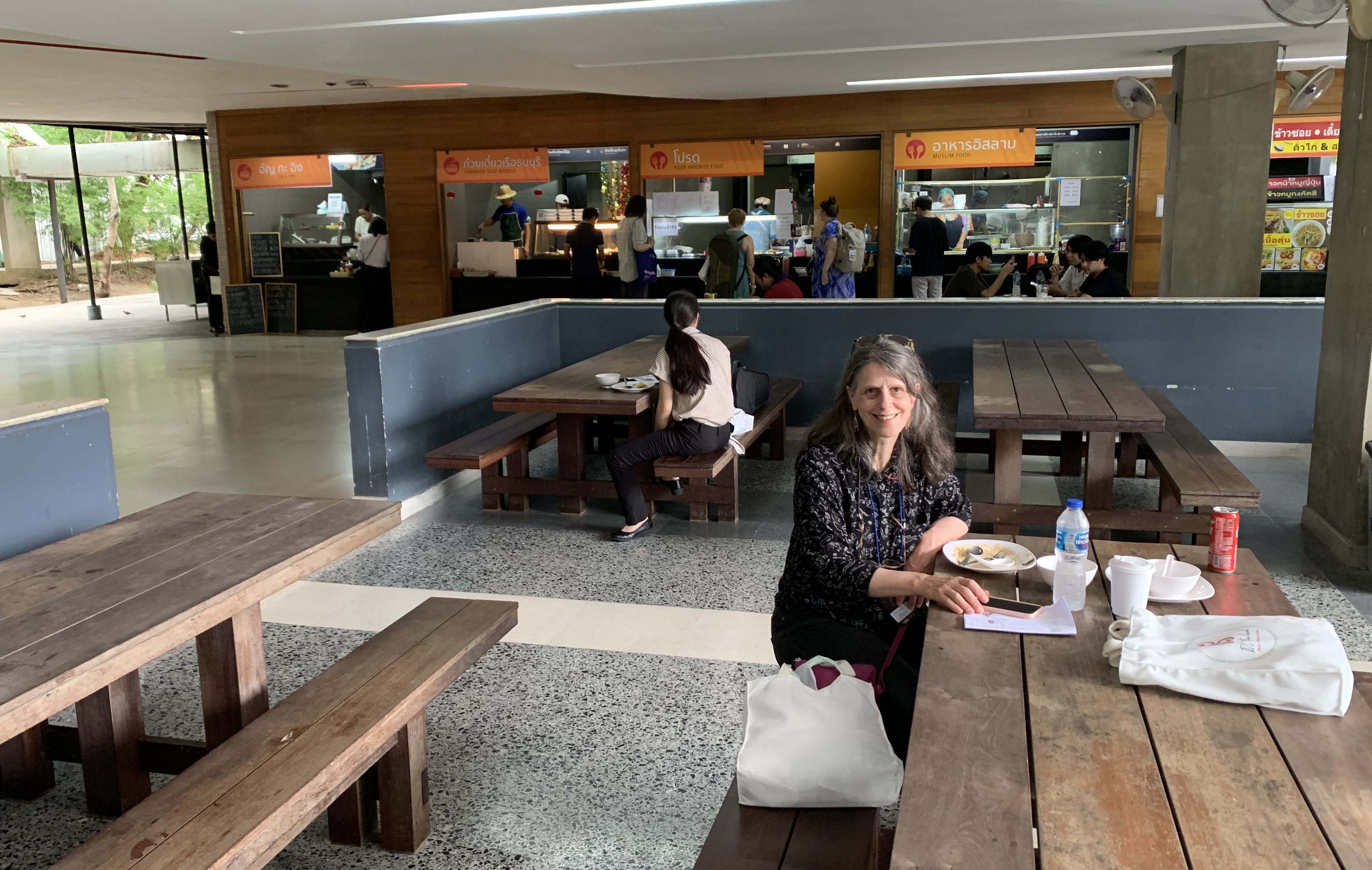 Ames Asbell’s lecture-recital “Vieuxtemps and his Circle” opened with “La Nuit” from Félicien David’s “Le Désert”, and went on to showcase various other composers who where somehow connected to Henri Vieuxtemps. To our big surprise, IVS board member Daphne Gerling revealed a beautiful singing voice, contributing to the presentation with Ames on the viola and Michelle Schumann (speaking of connections?) on the piano. Vieuxtemps was a child prodigy, and Ames told us about his life and about the composers who influenced (and were inspired by) him such as Liszt, exemplified by his Romance Oubliée. This very interesting lecture was concluded with La Maggiolata by Jenö Hubay, Vieuxtemps’ protegé (next to Ysaÿe) in Brussels.
Ames Asbell’s lecture-recital “Vieuxtemps and his Circle” opened with “La Nuit” from Félicien David’s “Le Désert”, and went on to showcase various other composers who where somehow connected to Henri Vieuxtemps. To our big surprise, IVS board member Daphne Gerling revealed a beautiful singing voice, contributing to the presentation with Ames on the viola and Michelle Schumann (speaking of connections?) on the piano. Vieuxtemps was a child prodigy, and Ames told us about his life and about the composers who influenced (and were inspired by) him such as Liszt, exemplified by his Romance Oubliée. This very interesting lecture was concluded with La Maggiolata by Jenö Hubay, Vieuxtemps’ protegé (next to Ysaÿe) in Brussels.
Alicia Marie Valoti‘s self-composed solo sonata was originally meant to be premiered at the IVC in Columbus last year. Unfortunately this plan was thwarted by COVID, but now finally we got to hear it! And it definitely deserves the big stage, with a clear (as-advertized) Hindemith style! The piece has a great opening with beautiful quiet moments, nearly Gregorian passages. And again a virtuosic ending of the first movement. The second movement starts with a beautiful melody, repeating with accompaniment of the solo player herself. Also left hand pizzicato melody and making a real nice building in melody, phrases and harmony. The last movement is a tarantella, exposing Alicia’s Italian roots. Also some jazzy and blue grass moments in it. Going to kind of passacaglia chord playing. It must be fun practicing and playing this piece. Extended techniques are well used. The theme of the tarantella returns. The end is introduced with breathtaking harmonics leading to a climax with fire.
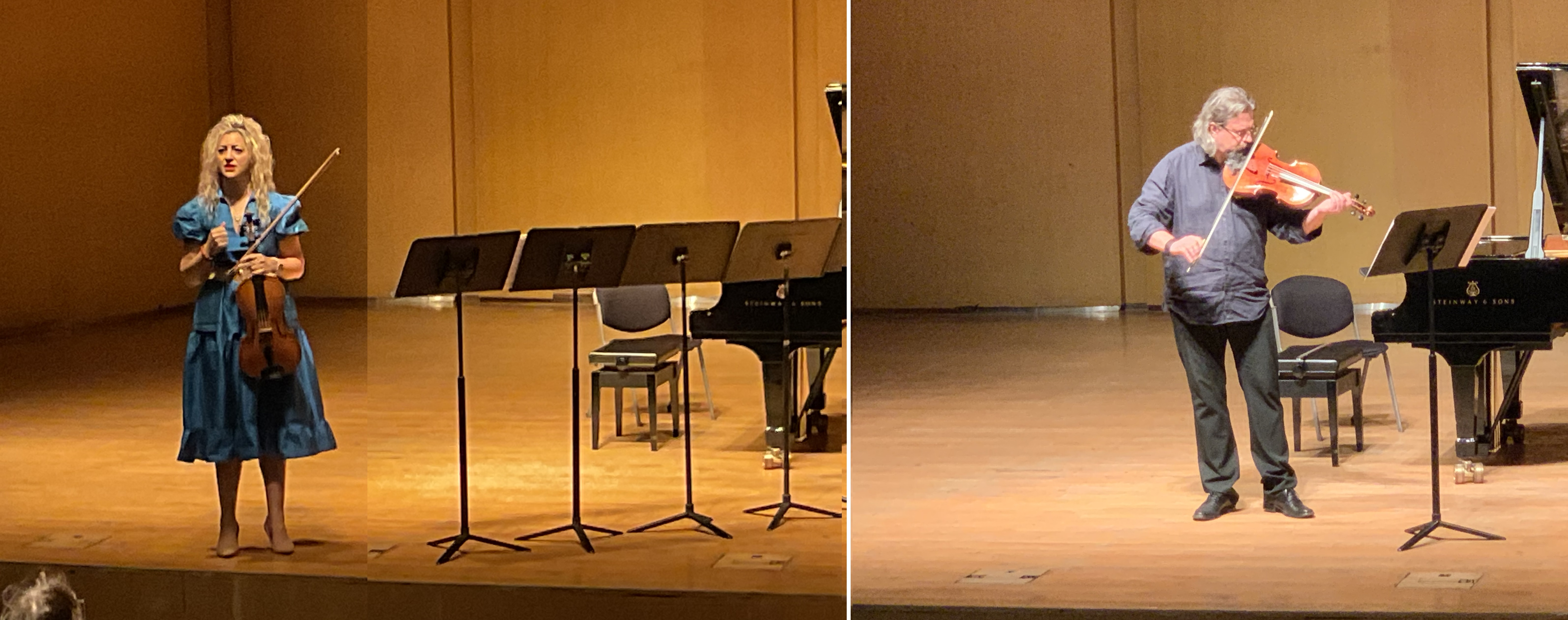 Marcin Murawski has brought a program of 6 female Polish composers in ‘12 shades of viola’. Each of the six composers wrote two pieces, in total one for each month of the year. It was a collaboration between the professor, his Viola students and the composers. They made video clips of these pieces as well, which can be found on the YouTube channel of the International Viola Society Prof. Murawski is a great ambassador for the adventurous way of composing in Poland, the country who gave us a lot of great composers. And his stage performance is perfect, funny, serious, and technically great!
Marcin Murawski has brought a program of 6 female Polish composers in ‘12 shades of viola’. Each of the six composers wrote two pieces, in total one for each month of the year. It was a collaboration between the professor, his Viola students and the composers. They made video clips of these pieces as well, which can be found on the YouTube channel of the International Viola Society Prof. Murawski is a great ambassador for the adventurous way of composing in Poland, the country who gave us a lot of great composers. And his stage performance is perfect, funny, serious, and technically great!
Next we were treated to a Masterclass by the guest artist Juan-Miguel Hernandez. He gave a particularly memorable class on the Stamitz concerto, transforming the talented 14-year-old student’s rough technical patches into more melodious and sonorous material. Although public masterclasses can never be quite “normal”, for the student nor for the teacher, Hernandez comes across as a very engaged and well-reflected teacher.
 The first Congress day was concluded with the evening concert by Featured Artist Miti Wisuthumporn, a key figure in the Thai Viola community, and principal viola of the Royal Bangkok Symphony Orchestra. His program was titled “Rainbow Connection”, speculating what can be found at the end of the rainbow. Is it an illusion? A dream? A pot of gold? A nice and fruitful idea.
The first Congress day was concluded with the evening concert by Featured Artist Miti Wisuthumporn, a key figure in the Thai Viola community, and principal viola of the Royal Bangkok Symphony Orchestra. His program was titled “Rainbow Connection”, speculating what can be found at the end of the rainbow. Is it an illusion? A dream? A pot of gold? A nice and fruitful idea.
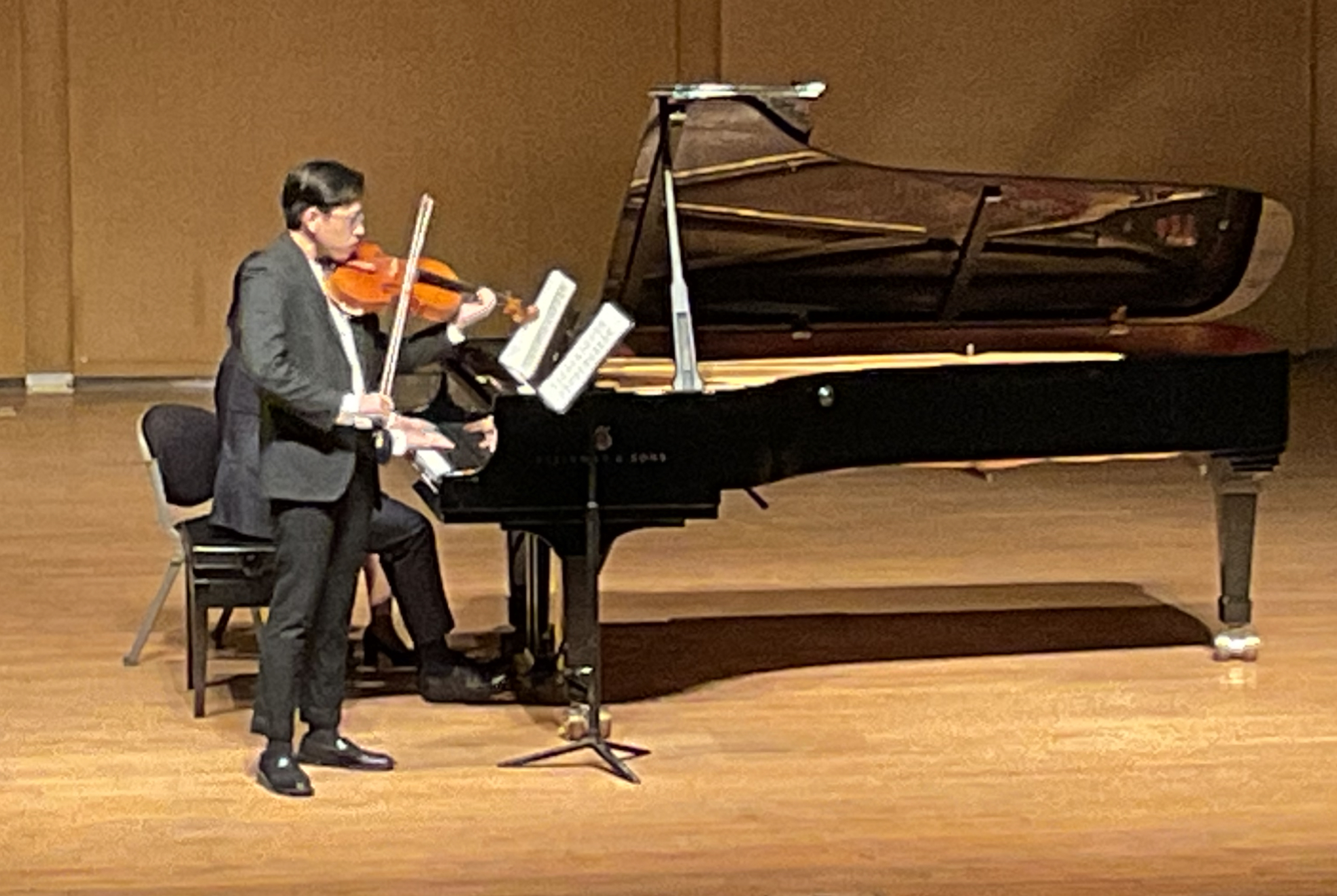 He started off with the Album leaves by Hans Sitt, for sure he is steering toward the ’’Dream” answer, but in my perception the “leafing for an answer” takes rather long.
He started off with the Album leaves by Hans Sitt, for sure he is steering toward the ’’Dream” answer, but in my perception the “leafing for an answer” takes rather long.
The next piece on the program is the world premiere of “Unbounded” by Thai composer Trisdee na Patalung. At first it feels a bit like a viola joke. The first 5 minutes the viola only plays the open C string and the piano is working like hell. But then it feels nearly magic when finally the viola part finally abandons the C string, ending on a high note where again the piano takes over. The viola goes down again to the C with a cadenza.
[kd] Finally then, the real Grand Tango by Astor Piazzolla, originally written for Rostropovich who had a good relation with the tango specialist. After that it is played by so many instrumentalists. What the idea is with the Piazzolla (and Silent Night, for that matter) in the rainbow program, I have to ask.
[ks] A great start to a highly anticipated Congress. And so it is time to go – pardon me, “Grab” a taxi – to the pub. Those of us who thought they could walk that short mile, dearly regretted it (see earlier comments about Thai roads). Anyway, the local Italian restaurant Rustico accepted the challenge of feeding some twenty-odd Congress participants. The friendly owner from Genova looked a bit bewildered at first, but seemed gratified by the massive beer consumption of the Polish, Dutch and Norwegian guests in particular. The pasta was really good too, by the way…
Stay tuned for the next Daily blog… as soon as we can get it ready|
Karin and Kristofer
<next day>

